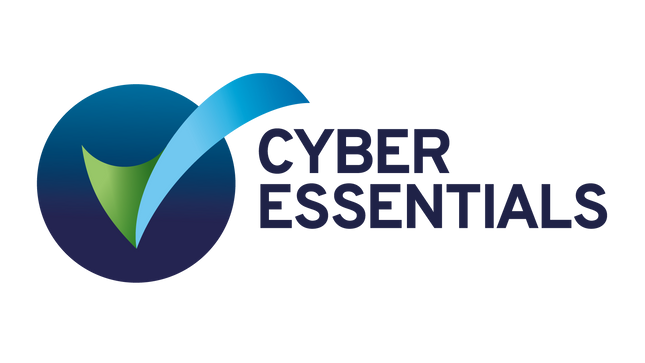
In today's digital age, the threat of cyber-attacks looms large over businesses of all sizes. From small start-ups to large corporations, no organisation is immune to the potential devastation caused by a cyber breach. As technology continues to advance, so do the tactics of cyber criminals, making it essential for businesses to take proactive measures to protect their sensitive data and digital infrastructure. One such measure is obtaining Cyber Essentials and Cyber Essentials Plus certifications, a crucial step in safeguarding your business against cyber threats.
What is Cyber Essentials Certification?
Cyber Essentials is a government-backed scheme designed to help businesses protect themselves against common cyber threats. The certification focuses on five key areas of cyber security, including boundary firewalls and internet gateways, secure configuration, access control, malware protection, and patch management. By adhering to these fundamental security principles, businesses can significantly reduce their vulnerability to cyber-attacks.
The Importance of Cyber Essentials Certification
Mitigating Common Cyber Threats
Cyber Essentials certification provides a solid foundation for implementing essential security measures that can mitigate the most common cyber threats. By addressing vulnerabilities in areas such as network security, software configuration, and access control, businesses can significantly reduce the risk of falling victim to cyber-attacks such as phishing, ransomware, and unauthorised access.
Enhancing Customer Trust
In an era where data privacy and security are at the forefront of public concern, businesses that hold Cyber Essentials certification demonstrate their commitment to protecting customer data. This can enhance trust and confidence among existing and potential customers, reassuring them that their sensitive information is being handled with the utmost care and consideration.
Meeting Legal and Regulatory Requirements
With the implementation of data protection regulations such as the General Data Protection Regulation (GDPR), businesses are increasingly obligated to ensure the security and privacy of the personal data they handle. Cyber Essentials certification provides a clear framework for meeting these legal and regulatory requirements, helping businesses avoid costly penalties and reputational damage resulting from non-compliance.
Accessing Business Opportunities
Many government contracts and business partnerships now require suppliers and partners to hold Cyber Essentials certification. By obtaining this certification, businesses can unlock new opportunities for collaboration and procurement, as it demonstrates a commitment to robust cyber security practices and a proactive approach to protecting sensitive information.
Safeguarding Business Continuity
A successful cyber-attack can have devastating consequences for a business, ranging from financial losses to reputational damage. Cyber Essentials certification helps businesses establish a strong security posture, reducing the likelihood of disruptive cyber incidents and minimising the potential impact on business operations. By safeguarding business continuity, businesses can maintain their reputation and customer trust even in the face of cyber threats.
The Process of Obtaining Cyber Essentials Certification
- Self-Assessment: Businesses begin by conducting a self-assessment against the Cyber Essentials requirements, identifying areas where improvements are needed to meet the certification criteria, and implementing the necessary changes. Whilst some companies will be able to complete all questions in the assessment internally, it is often useful to outsource the process to your IT support company who may have a better technical understanding of your setup and be able to make the required changes to be compliant.
- External Assessment: An external certification body or qualified assessor reviews the application and determines if your responses are sufficient to meet the expected criteria. Feedback is given where needed and the assessor will request further information where required. Once updated, the application can then be submitted again for further review.
- Certification: Upon successful completion of the assessment, the business is awarded Cyber Essentials certification, demonstrating its commitment to robust cyber security practices.
- Advanced verification: Once certification has been achieved, a business can go one step further and apply for Cyber Essentials Plus certification. This is where an external certification body or qualified assessor verifies your responses in the initial assessment. This involves them running a vulnerability tool on a selection of devices and remote access to check various security and compliance settings to confirm that your self-assessment is true reflection of your IT infrastructure.
Maintaining Cyber Essentials Certification
Once obtained, Cyber Essentials certification requires ongoing maintenance to ensure that the business's security measures remain effective and up to date. This may involve regular security assessments, updates to security policies and procedures, and staying informed about emerging cyber threats and best practices in cyber security.
This certification must be renewed each year to maintain the Cyber Essentials (Plus) status.
Summary
Cyber security is an ever-growing concern for businesses and a cyber-attack could be right around the corner. By meeting the security and compliance standards that Cyber Essentials requires your company will be better equipped to deal with whatever comes your way. The annual renewal is a great way to regularly evaluate and improve your IT infrastructure.
Through Cyber Essentials, Qdos can help you build confidence in your IT and demonstrate to your clients that your business is proactive in the fight against cyber-attacks.
Get Protected with Qdos Digital Solutions
Take the next step to getting Cyber Essentials Certification







